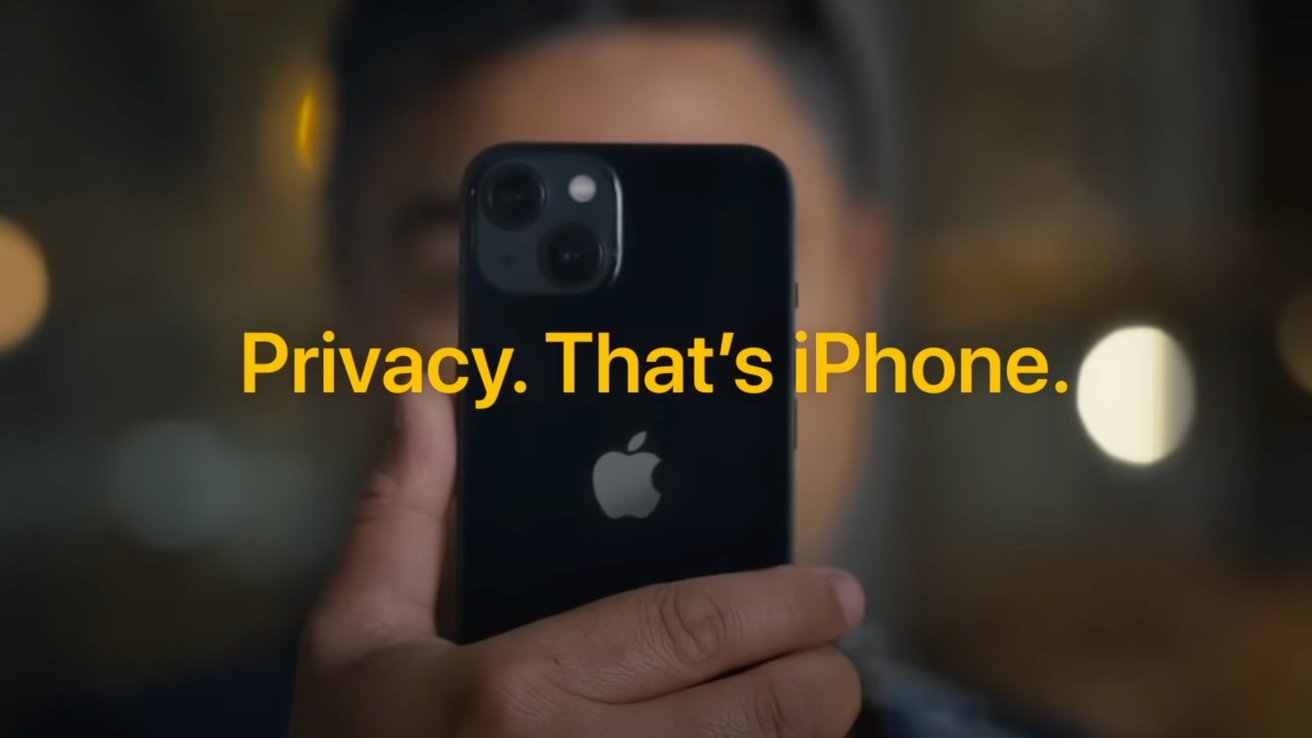Developers at Mysk published a report in November 2022 accusing Apple of including a device identifier with information that it claims was meant to be anonymous. This has sparked a series of nearly identical class action lawsuits that seek $5 million in damages due to Apple's allegedly dishonest privacy stance.
Plaintiff Julia Cima filed the lawsuit with the Northern District of California. She seeks class action for anyone affected by Apple's various violations of privacy law, competition, and more.
The lawsuit calls out Apple's "flagrant violation of consumer privacy" and inability to honor users' requests to restrict data sharing. Apple restricts third-party apps from using identifiers and cross-app tracking but still tracks users across its own apps with App Tracking Transparency turned on.
Apple describes App Tracking Transparency as a protection against third-party tracking. That's data harvested by users in one app being used to track or advertise to them in another app.
A white paper filed by Apple states in unambiguous terms that Apple doesn't restrict the use of first-party data. Apple itself admittedly uses first-party data and sees itself as held to a higher standard than other companies.
App Tracking Transparency has never been heralded as the end of data collection by Apple itself. Instead, the company promoted it as a privacy tool that would eliminate data brokers' ability to create massive data stores based on how individuals browse multiple apps and websites.
Any app that users install that is connected to the internet is capable of observing their interactions, and has to, to some extent. App Tracking Transparency, for example, won't stop Google from tracking user searches, Netflix from tracking what movie a user watches, or Amazon from seeing user purchases.
Even Apple's App Store has its privacy labels to tell users what data is collected by apps, which should tell users that Apple doesn't stop all collection nor does it intend to.
The lawsuits have a fundamental misunderstanding of first-party data versus third-party data, and how Apple approaches each. It isn't clear how these lawsuits will proceed.
Apple has already been hit with three other privacy-focused class action lawsuits:
Apple Privacy Lawsuit 4 by Mike Wuerthele on Scribd
 Wesley Hilliard
Wesley Hilliard

-m.jpg)






 Marko Zivkovic
Marko Zivkovic
 Mike Wuerthele
Mike Wuerthele
 Christine McKee
Christine McKee
 Amber Neely
Amber Neely


 William Gallagher
William Gallagher










3 Comments
... because of course everyone has the time and ability to read and understand the full EULA and white papers including the often vague and carefully couched legal language ...
Would it be fairer to offer opt in as something new to those who often say they 'don't have anything to hide'?
For example is there even an opt out on Photos tagging and was onboard voice dictation recently sunset to require use of Siri Apple servers...?
Mysk apparently found Apple is even bypassing user VPN... How is that OK ...?
Is the only choice is to not use the applications or summarily the platform, with the seemingly accelerating cycles and support obsolescence since 2011...?
constitution.congress.gov/constitution/amendment-4
How is this a 'fundamental misunderstanding' or 'higher standard' ... ?
Is it time to set an example and legal precedent in the harshest possible terms ?
Might what I understand was Elizabeth Warren's suggestion to change the corporate fiduciary duty definition from shareholder to stakeholder also worth considering as a broader more systemic improvement...?